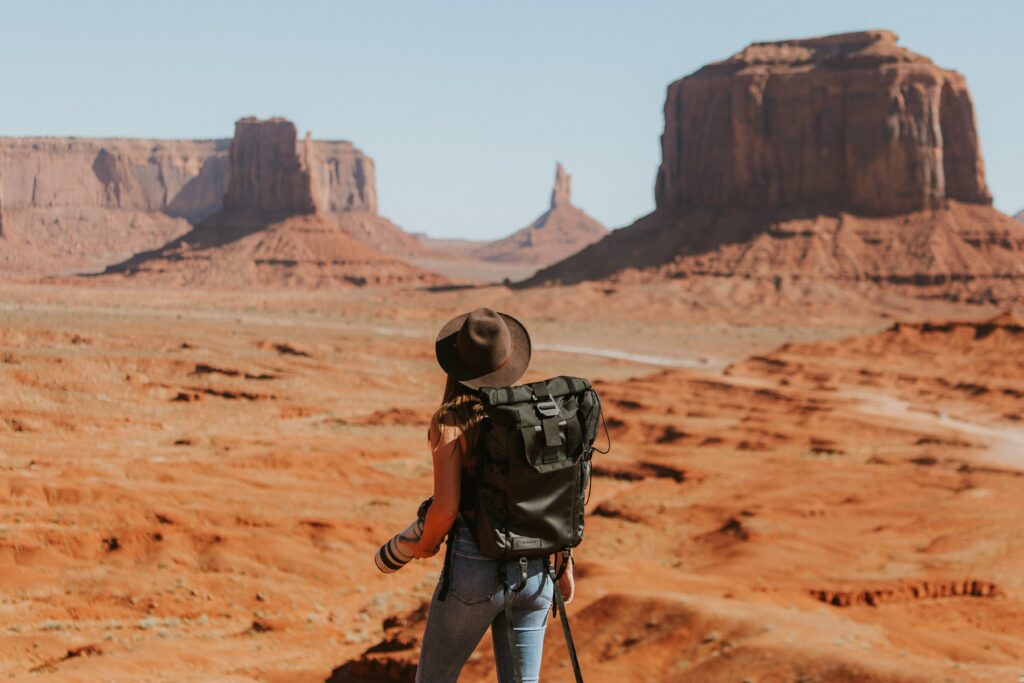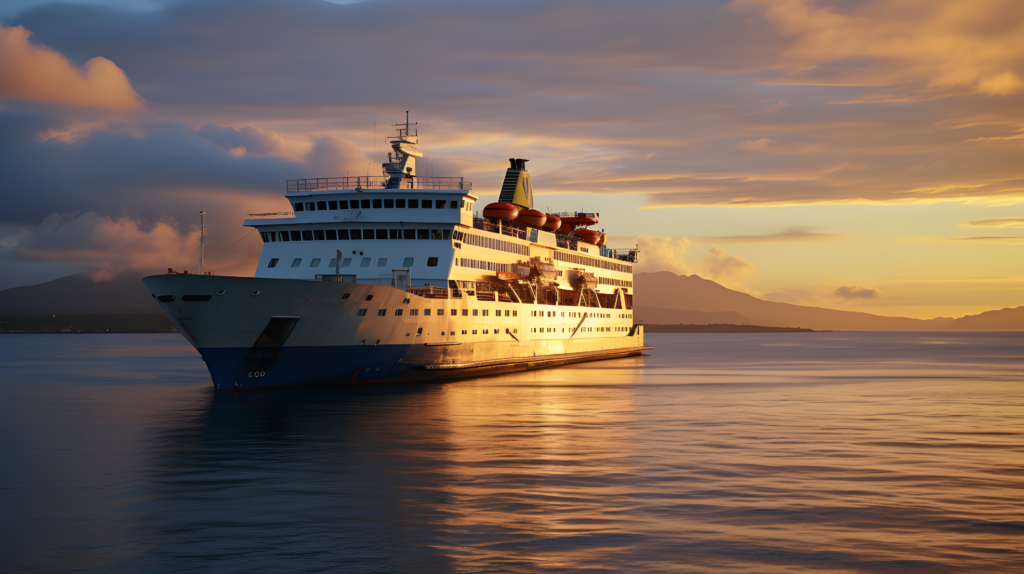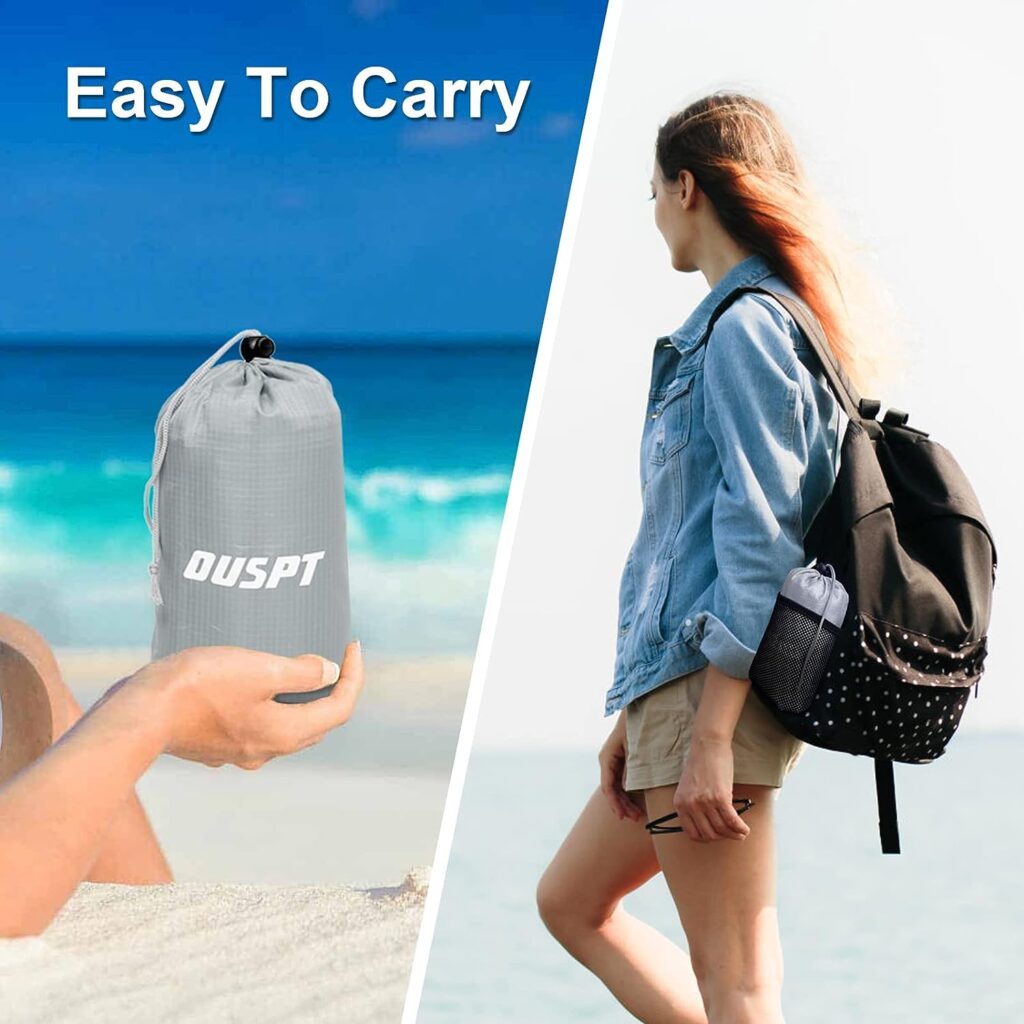Are you ready to embark on a solo travel adventure but don’t know where to start? Look no further, because “The Ultimate Guide for Solo Travel for Beginners” is here to help. Packed with expert knowledge and invaluable tips, this guide is your go-to resource for planning and executing your first solo trip. Whether you’re seeking inspiration, safety advice, or practical information on accommodations and transportation, this comprehensive guide has got you covered. So get ready to embrace the excitement and freedom that comes with solo travel, and let this guide be your trusty companion every step of the way.
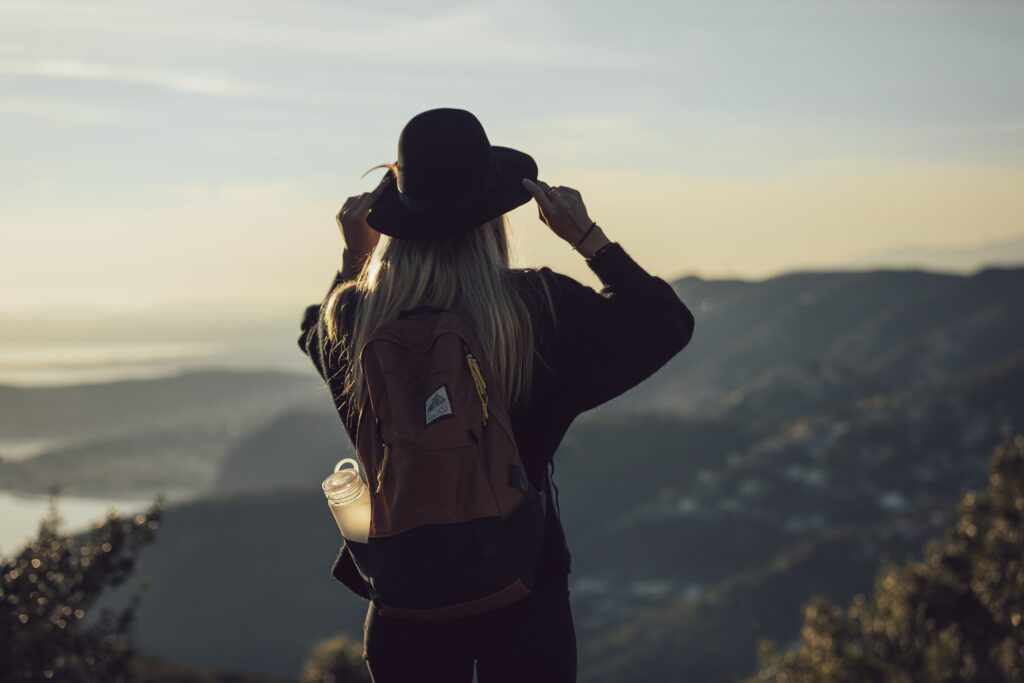
This image is property of images.unsplash.com.
Why Travel Solo?
Traveling solo can be a truly transformative and life-changing experience. While it may seem intimidating at first, embarking on a solo adventure has countless benefits that make it well worth the initial nerves. Whether you’re seeking to discover more about yourself, gain independence and confidence, or simply enjoy the freedom and flexibility of exploring on your own terms, solo travel offers a unique opportunity for personal growth and self-discovery. So why travel solo? Let’s explore the benefits in more detail.
Benefits of Solo Travel
Increased Independence and Confidence
One of the primary benefits of traveling alone is the increased sense of independence and self-confidence that it instills. When you’re solely responsible for making decisions, navigating unfamiliar places, and managing unexpected challenges, you quickly learn to rely on yourself and trust your own capabilities. With each successful experience, your confidence grows, empowering you to tackle new and unfamiliar situations with ease. This newfound independence can greatly enhance your overall self-esteem and how you approach various aspects of your life back home.
Flexibility and Freedom
Traveling solo grants you the ultimate freedom to design your itinerary according to your own preferences and interests. Without the need to consider the opinions or requirements of travel companions, you can fully immerse yourself in the experiences that matter most to you. Want to spend the entire day exploring a hidden gem you stumbled upon? Go ahead! Feel like changing your plans last minute? You have the freedom to do so without any compromise. The flexibility to adapt and make spontaneous decisions is a true luxury of solo travel.
Opportunity for Self-Reflection
In the hustle and bustle of daily life, it can be challenging to find moments for introspection and self-reflection. However, solo travel provides the perfect environment for this. When you’re away from your familiar surroundings and routines, you have the opportunity to disconnect from distractions, embrace solitude, and truly reflect on your desires, goals, and personal growth. Whether it’s during a peaceful hike, a quiet meal at a local café, or while gazing at a mesmerizing sunset, solo travel allows for profound moments of self-discovery and introspection.
Chance to Step Out of Comfort Zone
Stepping out of your comfort zone is where personal growth truly happens, and solo travel is an excellent way to push your boundaries. Without the safety net of familiar faces or routines, you’re encouraged to try new things, meet new people, and engage in experiences you may have otherwise overlooked. Embracing the unknown fosters personal growth, cultivates resilience, and helps you develop a broader perspective of the world. Overcoming challenges and embracing the unexpected is not only thrilling but also gives you confidence in facing future uncertainties.
Choosing the Right Destination
When it comes to solo travel, choosing the right destination is key to ensuring an enjoyable and safe experience. Considering factors such as safety, budget-friendliness, traveler-friendliness, local customs, and language considerations can help guide you towards a destination that aligns with your interests and preferences. Let’s delve into these aspects and explore how you can make an informed decision.
Safety Considerations
Safety should be a top priority when planning any trip, especially when traveling alone. Researching the safety of potential destinations can help you make an informed decision and avoid potential risks. Look for destinations with low crime rates, political stability, and reliable healthcare systems. It’s also helpful to check travel advisories issued by your home country’s government and familiarize yourself with any specific safety precautions or warnings for your chosen destination.
Budget-Friendly Options
Traveling solo doesn’t mean you have to break the bank. There are plenty of budget-friendly destinations that offer incredible experiences at an affordable cost. Consider countries with lower living costs, such as Southeast Asia, Eastern Europe, or South America. Additionally, cities with well-established hostel networks and affordable transportation options can help stretch your budget further.
Solo Traveler-Friendly Destinations
Some destinations are renowned for being particularly welcoming and accommodating towards solo travelers. These destinations often have thriving backpacking communities, plenty of budget accommodations, and a vibrant social scene that makes it easy to meet fellow travelers. Destinations like Thailand, Australia, New Zealand, and Costa Rica are known for their friendliness towards solo travelers, making them a great starting point for those new to solo travel.
Researching Local Customs and Culture
Before visiting any destination, it’s essential to familiarize yourself with the local customs and culture. Taking the time to understand the traditions, etiquette, and cultural norms of the country you’ll be visiting will not only help you navigate social situations with ease but also demonstrate respect to the locals. Researching local customs can also provide valuable insights into dress codes, language expectations, and acceptable behavior, ensuring a more immersive and respectful travel experience.
Language Considerations
While it’s not necessary to be fluent in the local language, gaining some familiarity with basic phrases and greetings can go a long way in facilitating communication and building connections. Consider destinations where English is widely spoken if you’re not confident in your foreign language skills. However, embracing the challenge of navigating a country with a different language can also be incredibly rewarding and provide unique cultural experiences.
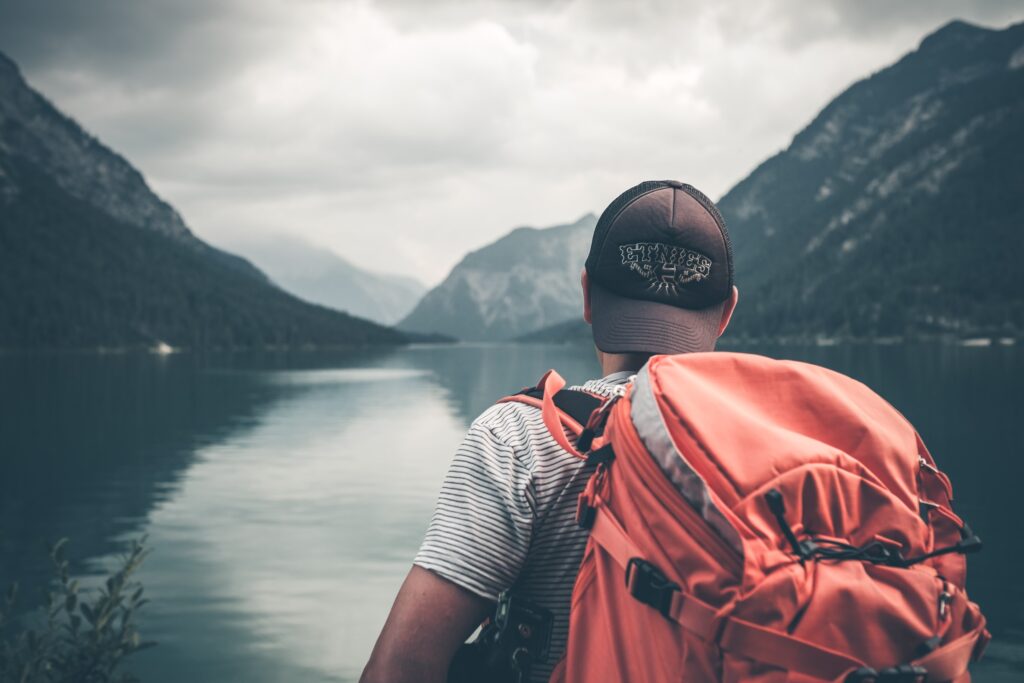
This image is property of images.unsplash.com.
Planning and Preparation
Once you’ve chosen your destination, it’s time to dive into the planning and preparation phase. This stage sets the foundation for a successful solo adventure and ensures that you’ll have everything you need to make the most of your trip. From setting a budget to creating an itinerary and packing essentials, here’s what you need to consider.
Setting a Budget
Creating a realistic budget is essential for solo travel. Consider your overall travel expenses, including accommodation, transportation, meals, activities, and any unforeseen costs. Research the average costs of your chosen destination to gauge an estimate, and allocate a contingency fund for emergencies. By setting a budget, you’ll have a clear idea of what you can afford and make informed decisions about your travel choices along the way.
Determining the Length of Your Trip
Deciding on the duration of your solo adventure is crucial for effective trip planning. Consider factors such as the time you can take off work or studies, your travel goals, and the destination’s weather conditions during your preferred travel months. It’s important to strike a balance between fully immersing yourself in a destination and avoiding travel burnout. Be realistic about the amount of time you have available, and don’t underestimate the value of slower-paced travel.
Booking Accommodation
Whether you prefer the social atmosphere of a hostel or the privacy of a hotel room, choosing the right accommodation is essential for a comfortable and enjoyable trip. Hostels are a popular choice for solo travelers as they provide opportunities to meet fellow adventurers and join group activities. Hotels offer privacy and comfort, while guesthouses and homestays offer a more immersive cultural experience. Research and book your accommodation well in advance to secure the best options and prices.
Creating an Itinerary
While having a detailed itinerary is not necessary for every traveler, having a general plan can help optimize your time and maximize your experiences. Start by identifying the must-see attractions and activities in your chosen destination and prioritize them based on your interests. Consider adding some flexibility to your itinerary to allow for spontaneous discoveries and recommendations from fellow travelers.
Packing Essentials
A well-packed suitcase can make a world of difference during your solo adventure. Start by creating a packing checklist customized for your destination and the experiences you plan to have. Pack versatile clothing that can be easily mixed and matched, taking into account the local weather conditions and cultural norms. Don’t forget travel essentials such as toiletries, a first aid kit, travel adapters, a portable charger, and any necessary medications. Remember to pack light to avoid unnecessary hassle and potential baggage fees.
Safety Tips for Solo Travelers
When traveling alone, prioritizing your safety is paramount. While solo travel can be incredibly rewarding and empowering, taking certain precautions ensures a smooth and secure journey. By following these safety tips, you can minimize risks and fully embrace the joys of independent exploration.
Informing Others of Your Itinerary
Before embarking on your solo adventure, it’s crucial to share your travel plans and itinerary details with someone you trust. Inform a family member, friend, or colleague about your destination, accommodation details, and contact information. Regularly update them about any changes to your plans and maintain open lines of communication throughout your trip. Having someone aware of your whereabouts provides an added layer of security and peace of mind.
Keeping Important Documents Safe
Your passport, identification, and other important documents are crucial for smooth travel. It’s essential to keep these items secure at all times. Invest in a money belt or a secure travel wallet to keep your valuables close to your body and out of sight. Make digital copies of your travel documents and store them securely in the cloud or via email, ensuring easy access in case of loss or theft. It’s also a good idea to carry spare passport photos and have backup credit or debit cards in case of emergencies.
Being Aware of Your Surroundings
Vigilance and awareness of your surroundings are key to personal safety. Stay alert, especially in crowded or unfamiliar areas. Trust your instincts and avoid situations or individuals that make you feel uncomfortable. Familiarize yourself with local emergency numbers and locate the nearest embassy or consulate. Avoid displaying signs of wealth or carrying large amounts of cash. By being mindful of your environment, you can minimize potential risks and enjoy a worry-free journey.
Avoiding Dangerous Areas
Researching the safety of specific neighborhoods or areas within your destination is crucial for avoiding dangerous situations. Certain areas may have higher crime rates or be known for scams targeting tourists. Use reliable travel resources, consult local authorities or fellow travelers, and trust reputable sources when assessing potential risks. It’s essential to strike a balance between exploration and personal safety, so exercise caution when venturing into unfamiliar territories.
Knowing Emergency Contact Information
Before departing for your solo adventure, ensure you have emergency contact numbers readily available. Save the local emergency services number in your phone contacts, and familiarize yourself with the process for seeking assistance in the country you’ll be visiting. Additionally, have a list of emergency contact numbers from your home country for easy access. Should any unforeseen circumstances arise, you’ll have the necessary information at hand to seek help efficiently.

This image is property of images.unsplash.com.
Transportation Options
Getting from one place to another is an integral part of any travel experience. As a solo traveler, choosing the right transportation options can significantly impact your convenience, flexibility, and overall safety. Let’s explore some of the transportation options available to solo adventurers.
Choosing the Right Mode of Transportation
The mode of transportation you choose largely depends on your destination, budget, and personal preferences. Public transportation, such as buses, trains, and metros, is often cost-effective and more sustainable. It allows for a more immersive cultural experience and offers opportunities to interact with locals. If you prefer more privacy and flexibility, renting a car offers convenience and the freedom to explore off-the-beaten-track destinations at your own pace. In some cities, ride-hailing services like Uber or Grab offer a convenient and safe way to get around.
Navigating Public Transportation
Using public transportation can be a bit daunting in a new city, but it’s often the most efficient and budget-friendly option. Before your trip, research the public transportation systems available at your destination. Familiarize yourself with maps, schedules, and ticketing methods. If possible, opt for reusable travel cards or local transport apps to save time and money. Be cautious with your belongings when using crowded public transportation and avoid displaying signs of wealth.
Renting a Car
Renting a car provides unparalleled freedom and flexibility, particularly if you’re planning to explore off the beaten path or rural areas. Before renting a car, familiarize yourself with local driving rules, road conditions, and parking regulations. Ensure you have the necessary permits or licenses, and opt for insurance coverage to mitigate potential risks. Be aware of your surroundings, especially in unfamiliar areas, and always secure your car and belongings.
Using Ride-Hailing Services
Ride-hailing services like Uber, Lyft, or Grab have revolutionized transportation in many parts of the world. These services offer convenience, safety, and often fixed pricing. Research the availability and reliability of ride-hailing services in your destination, and download the relevant apps before your trip. Ensure you have access to a stable internet connection or consider purchasing a local SIM card for seamless communication with your driver.
Booking Domestic and International Flights
When it comes to longer distances or international travel, flying is often the fastest and most convenient option. Utilize flight comparison websites to find the best deals and consider flexibility with dates to secure more affordable fares. When booking flights, pay attention to baggage allowances, departure and arrival times, and any potential layovers or transit visa requirements. Arrive at the airport well in advance and remain mindful of security procedures and immigration regulations.
Solo Travel Accommodation
Choosing the right accommodation sets the stage for a comfortable and enjoyable trip. While preferences vary from traveler to traveler, solo travelers often have unique requirements when it comes to finding the perfect place to rest their head. Let’s explore different types of accommodation and their suitability for solo travelers.
Types of Accommodation for Solo Travelers
Solo travelers can choose from a variety of accommodation options, each offering its own advantages and charm. The type of accommodation you opt for largely depends on your budget, desired level of privacy, and propensity for social interaction. From budget-friendly hostels to luxurious hotels, there’s something to suit every traveler’s needs and preferences. Let’s explore some popular choices for solo adventurers.
Hostels
Hostels are a staple choice for budget-conscious solo travelers seeking social interaction and a vibrant atmosphere. With shared dormitory-style rooms, communal kitchens, and common areas, hostels offer numerous opportunities to meet fellow travelers from all corners of the globe. Many hostels also organize social activities, city tours, or pub crawls, making it easier to connect with like-minded individuals. While dormitories are the most affordable option, private rooms are often available for those seeking a bit more privacy.
Hotels
Hotels provide comfort, privacy, and a range of amenities to make your solo adventure truly enjoyable. While they may be slightly pricier than other options, hotels offer convenience and a peaceful retreat after a day of exploration. Take advantage of the concierge services for local recommendations, and make use of the safety features provided by reputable hotels. Hotels also often have in-house restaurants, room service, and facilities like fitness centers or swimming pools, ensuring a comfortable and relaxing stay.
Guesthouses
Guesthouses, often family-run establishments, offer a more personal and intimate experience compared to hotels. With smaller capacities and attentive hosts, guesthouses provide a homely atmosphere and the opportunity to connect with locals. Many guesthouses offer communal spaces or communal meals, where you can interact with fellow guests and gain insights into the local culture. These cozy and welcoming accommodations are ideal for solo travelers seeking a balance between independence and social camaraderie.
Homestays
For a truly immersive cultural experience, consider staying in a homestay. Homestays involve staying with a local family, allowing you to observe daily life firsthand, participate in cultural activities, and gain a deeper understanding of local customs. While homestays may lack some of the conveniences and privacy of other accommodation options, they provide a unique opportunity to forge meaningful connections and create lasting memories. Homestays are particularly popular in rural areas, where you can engage in traditional practices and experience the warmth of local hospitality.
Meeting People and Making Friends
While solo travel can be an inherently independent experience, it doesn’t mean you have to be alone throughout your journey. In fact, solo travel often presents ample opportunities to meet like-minded individuals, forge new friendships, and share incredible moments with fellow adventurers. Here are some ways to connect with people on your solo adventure.
Joining Group Activities and Tours
Participating in group activities and tours is a fantastic way to meet fellow travelers while exploring your destination. Many destinations offer guided tours, adventure activities, or group excursions that cater specifically to solo travelers or small groups. These activities provide a ready-made community of like-minded individuals with shared interests, making it easier to strike up conversations and build friendships along the way.
Attending Local Events and Meetups
Immersing yourself in the local culture by attending events, festivals, or social meetups can lead to meaningful connections with both locals and fellow travelers. Check local event listings, social media groups, or websites for cultural happenings, concerts, or gatherings in your destination. From language exchange meetups to photography exhibitions, these events offer opportunities to connect with individuals who share common interests and passions.
Using Social Media and Traveler Apps
Social media platforms and traveler-specific apps have revolutionized the way people connect while traveling. Join travel-related groups or communities on platforms like Facebook or Reddit, where you can seek advice, join conversations, and potentially meet up with fellow travelers in your destination. Traveler apps, such as Tourlina or Backpackr, are designed specifically for solo travelers looking to connect with others. These platforms enable you to find travel buddies, join group activities, or simply seek advice from experienced solo travelers.
Utilizing Online Travel Communities
Online travel communities, such as travel forums or travel-specific websites, can be invaluable resources for solo travelers. Join popular forums like Lonely Planet’s Thorn Tree or TripAdvisor’s Travel Forum to ask questions, seek advice, and connect with travelers who have been to your destination. These communities often have dedicated sections for solo travelers, where you can find recommendations for safe accommodations, local insights, and even potential travel companions.
Being Open to New Experiences
Perhaps the most important aspect of meeting people and making friends while traveling solo is to remain open and approachable. Embrace the serendipity of travel, strike up conversations with fellow travelers, or accept invitations from locals. Be open to different perspectives and willing to step out of your comfort zone. By cultivating an open mindset, you’ll create opportunities for unexpected encounters and forge connections that will enrich your solo adventure.
Eating Alone and Dining Tips
One of the common challenges solo travelers face is dining alone. However, dining as a solo traveler can be a delightful experience filled with unique culinary adventures and the opportunity to savor local flavors. With a few tips and tricks, you can confidently step into restaurants and enjoy memorable dining experiences on your own.
Finding Solo Friendly Restaurants
When dining alone, it’s helpful to seek out restaurants that cater to solo diners or have a welcoming atmosphere for solo travelers. Look for places with communal tables, bar seating, or outdoor seating areas where you can enjoy your meal while people-watching. Local street food markets or food halls are often excellent options for solo travelers, providing diverse food choices and a lively atmosphere.
Trying Local Street Food
Sampling local street food is not only budget-friendly but also a fantastic way to immerse yourself in the local culinary scene. Street food markets and food stalls are prevalent in many countries, offering a wide array of mouth-watering delicacies. Take a stroll through bustling night markets or seek out local vendors recommended by residents. From savory snacks to sweet treats, street food presents an opportunity to embrace local flavors without the need for a formal dining setting.
Dining Etiquette in Different Cultures
When traveling to different countries, it’s crucial to familiarize yourself with local dining etiquette and customs. Table manners and dining practices can vary significantly from one culture to another. For example, in certain countries, it may be customary to eat with your hands or share dishes with others. Research local customs and observe how locals behave in restaurants to ensure you’re respectful of cultural norms and traditions.
Enjoying a Solo Picnic
Sometimes, the simplest pleasures while traveling come from enjoying a solo picnic in a scenic location. Be it a picturesque park, a sandy beach, or a serene mountaintop, finding a peaceful spot to savor a meal can be incredibly rewarding. Visit local markets or grocery stores to gather a delicious assortment of local produce, bread, and snacks. Pack a comfortable picnic blanket, some utensils, and enjoy a tranquil meal surrounded by nature.
Cooking your Own Meals
For solo travelers on a budget or those seeking a different culinary experience, cooking your own meals can be a fun and immersive option. If you have access to cooking facilities in your accommodation, visit local markets to purchase fresh ingredients and spices. Experiment with traditional recipes or create your own fusion dishes. Not only does this save money, but it also enables you to engage with the local ingredients and flavors on a deeper level.
Managing Solo Travel Expenses
Staying on top of your expenses is crucial to ensure your solo adventure remains financially viable and stress-free. By tracking your expenses, implementing cost-saving strategies, and budgeting for activities and attractions, you can enjoy your trip without breaking the bank. Here’s how to effectively manage your solo travel expenses.
Tracking Expenses
One of the first steps in managing your solo travel expenses is to keep a record of your spending. Use a travel expense tracker app or simply a dedicated notebook to jot down all your daily expenses. Divide your expenses into categories such as accommodation, transportation, meals, activities, and miscellaneous. Regularly review your spending to identify areas where you could potentially cut costs. By having a clear overview of your expenses, you can adjust your budget and make informed decisions along the way.
Cost-Saving Tips
Traveling solo doesn’t mean you have to sacrifice comfort or miss out on incredible experiences. With a few cost-saving strategies, you can stretch your budget further while still enjoying all that your destination has to offer. Consider these tips to save money during your solo adventure:
- Opt for budget accommodations such as hostels or guesthouses. Look for promotions or book directly to get the best deals.
- Use public transportation instead of expensive taxis or private transfers whenever feasible.
- Cook some of your own meals or eat at local markets or street food stalls.
- Take advantage of free or low-cost attractions, such as visiting public parks, attending free cultural events, or exploring city neighborhoods on foot.
- Consider traveling during the shoulder or low seasons when prices for accommodation, flights, and activities are generally lower.
- Use online travel websites or travel apps to compare prices and find the best deals for flights, accommodation, and activities.
- Take advantage of student, senior, or solo traveler discounts whenever available.
Budgeting for Activities and Attractions
To ensure you can experience all the activities and attractions that interest you, it’s important to set aside a portion of your budget specifically for this purpose. Research the costs of popular activities and attractions in advance and prioritize them based on your interests. Allocate a reasonable amount for each activity and factor these expenses into your overall budget. Remember to consider any additional costs such as transportation to and from attractions or entrance fees.
Avoiding Common Tourist Scams
When traveling solo, it’s essential to be aware of common tourist scams and tricks that can potentially drain your budget or compromise your safety. Scams can vary from destination to destination, but some common ones include overcharging for goods or services, fake ticket sales, pickpocketing, or distracting techniques. Stay vigilant, trust your instincts, and research common scams in your chosen destination. Avoid carrying large amounts of cash, be cautious when dealing with strangers, and always verify prices or services before making any payments.
Using Local Currency
Using local currency when traveling not only helps you manage your expenses more effectively but also allows you to support local businesses. Avoid excessive currency exchange fees by withdrawing cash from ATMs upon arrival or exchanging money at reputable bureaus with competitive rates. Familiarize yourself with the local currency and keep small denominations for small purchases or tipping. Having the right currency at hand will also save you the hassle of searching for exchange facilities on a daily basis.
Handling Solo Travel Challenges
While solo travel can be immensely rewarding, it’s essential to acknowledge that challenges can arise along the way. By being prepared, proactive, and open-minded, you can navigate these challenges with confidence and make the most of your solo adventure.
Dealing with Loneliness
Loneliness may occasionally creep in during solo travel, especially during quiet moments. Embrace these moments as opportunities for self-reflection or simply recharge by enjoying a solo activity. Engage with locals or fellow travelers through social activities or join group tours to combat isolation. Remember, you’re never truly alone if you’re open to connecting with those around you.
Overcoming Language Barriers
Communication can sometimes be challenging, particularly if you’re traveling to countries where the local language is unfamiliar to you. Overcome language barriers by learning some basic phrases, investing in a translation app or pocket dictionary, or utilizing non-verbal cues to convey your needs. Approach locals with a friendly attitude, and don’t be afraid to ask for help or clarification. Embrace the opportunity to learn from and connect with people from different cultures.
Managing Homesickness
Even the most intrepid solo travelers can experience moments of homesickness. Combat this feeling by maintaining regular communication with loved ones back home through messaging apps or video calls. Carry familiar mementos or comfort items that remind you of home. Engage in activities or hobbies that bring you joy and provide a sense of familiarity. Remember, homesickness is natural, and it often passes as you immerse yourself more fully in your travel experience.
Dealing with Unexpected Situations
No matter how well you plan, unexpected situations can arise during solo travel. It’s important to stay calm, think rationally, and address any challenges as they come. Trust your instincts, follow any emergency plans you have in place, and seek assistance from locals or authorities when needed. Having travel insurance that covers potential emergencies, such as medical issues or lost/stolen belongings, provides an added layer of security and peace of mind.
Seeking Help and Support
If you find yourself in a situation where you need help or support, don’t hesitate to reach out. Whether it’s contacting local authorities for assistance, seeking help from hotel staff, or reaching out to fellow travelers, remember that you’re not alone. Utilize your resources, maintain open lines of communication, and trust in the kindness of strangers. Solo travel offers not only independence but also an interconnectedness with people from all walks of life.
Conclusion
Embarking on a solo travel adventure is a truly remarkable opportunity to grow, explore, and create lasting memories. By considering the benefits of solo travel, choosing the right destination, planning for safety, and managing expenses, you can confidently navigate the world as a solo traveler. Embrace the freedom, seek new experiences, and let your solo journey be a catalyst for personal growth, self-discovery, and unforgettable adventures. Happy travels!

